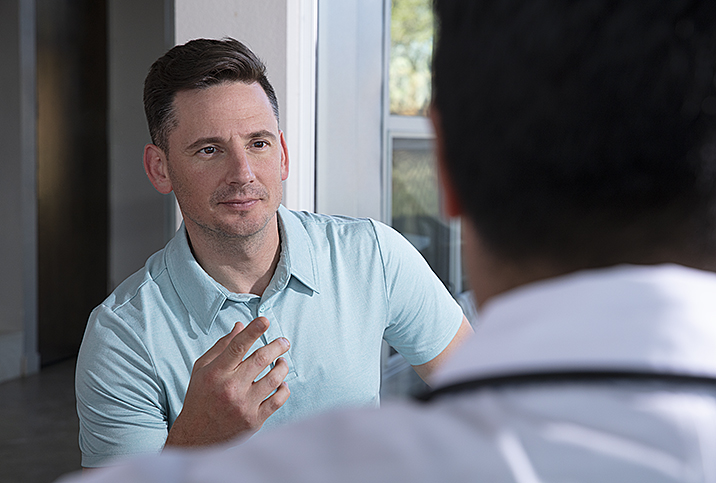Do You Need to Tell Your Partner You Have HPV?

About one in four Americans already have human papillomavirus (HPV), and a whopping 80 percent of people in the U.S. will get it at some point in their lifetime. There are more than 100 strains of HPV, most of which are not dangerous or accompanied by any symptoms at all. This means that many people who have it probably don’t even know they do.
Because of its prevalence and especially because it often has no impact on daily life, many people with HPV may not find it necessary to tell a partner of their infection. They may assume it’s not serious or that it’s so common that their partner has probably already been exposed or is bound to be at some point.
Men can’t even be tested for the virus. So why make things awkward?
However, two of the 150 different strains (types 16 and 18) of HPV can cause cancer of the anus, cervix, vagina, vulva, penis, head and neck. Additionally, several other strains, including types 6 and 11, can cause genital warts.
If you’ve been diagnosed with HPV, do you need to tell your partner? The answer is an unequivocal yes, especially because anyone you've infected can pass it on to subsequent partners and put them at risk.
How to tell your partner you have HPV
Broaching the topic of HPV with your partner may cause more concern and anxiety than the diagnosis itself. However, there are some steps you can take to make the conversation easier for you both.
The first thing you need to do is educate yourself about the virus and discover if the strain of HPV that you have is one of the low- or high-risk varieties.
Never apologize for your diagnosis. Remember, you didn’t do anything wrong. HPV is extremely common for sexually active adults, and you should never wear your infection as a badge of shame. Partners can even share strains with each other, making it difficult to know where the initial infection started.
Safe sex isn’t enough to fully protect you or your partner from HPV. Since the virus is transmitted through skin-to-skin contact, condoms and dental dams may not prevent it from spreading.
Focus on the future with your partner. HPV shouldn’t put an end to your relationship. If they become angry or upset and stalk off, let them go. While it may take time for some people to absorb and process the news, others simply won’t accept it and don’t deserve to date you.
When should you tell your partner you have HPV?
It’s never a good idea to blindside your partner with the news. Resist telling them while grocery shopping or on the way to your parent’s house for dinner. Schedule a time when you and your partner are alone, free from obligation and distraction.
If you’re worried about not being able to answer your partner’s questions, you can ask them to join you at your doctor’s appointment and have them fully address any issues or concerns.


















